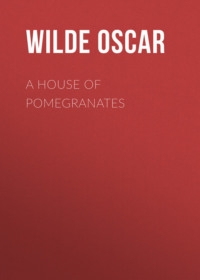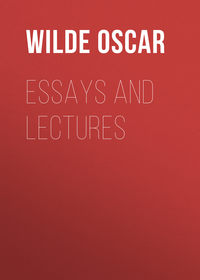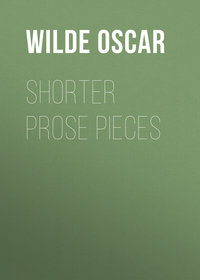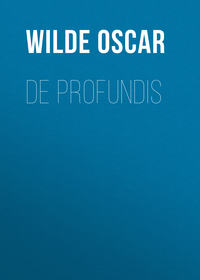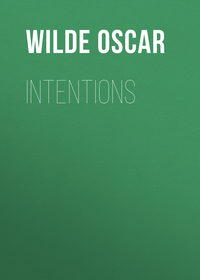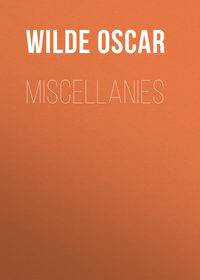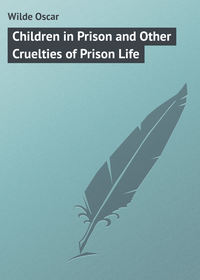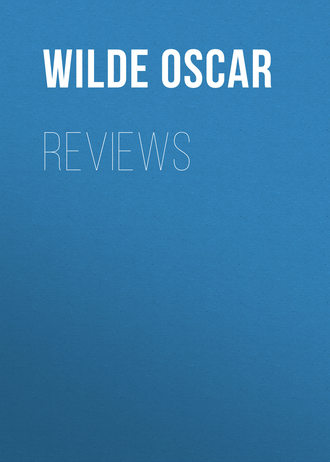 полная версия
полная версияReviews
Mr. Symonds, of course, deals with Jonson in his capacity as a critic, and always with just appreciation, but the whole subject is one that deserves fuller and more special treatment.
Some small inaccuracies, too, should be corrected in the second edition. Dryden, for instance, was not ‘Jonson’s successor on the laureate’s throne,’ as Mr. Symonds eloquently puts it, for Sir William Davenant came between them, and when one remembers the predominance of rhyme in Shakespeare’s early plays, it is too much to say that ‘after the production of the first part of Tamburlaine blank verse became the regular dramatic metre of the public stage.’ Shakespeare did not accept blank verse at once as a gift from Marlowe’s hand, but himself arrived at it after a long course of experiments in rhyme. Indeed, some of Mr. Symonds’ remarks on Marlowe are very curious. To say of his Edward II., for instance, that it ‘is not at all inferior to the work of Shakespeare’s younger age,’ is very niggardly and inadequate praise, and comes strangely from one who has elsewhere written with such appreciation of Marlowe’s great genius; while to call Marlowe Jonson’s ‘master’ is to make for him an impossible claim. In comedy Marlowe has nothing whatever to teach Jonson; in tragedy Jonson sought for the classical not the romantic form.
As for Mr. Symonds’ style, it is, as usual, very fluent, very picturesque and very full of colour. Here and there, however, it is really irritating. Such a sentence as ‘the tavern had the defects of its quality’ is an awkward Gallicism; and when Mr. Symonds, after genially comparing Jonson’s blank verse to the front of Whitehall (a comparison, by the way, that would have enraged the poet beyond measure) proceeds to play a fantastic aria on the same string, and tells us that ‘Massinger reminds us of the intricacies of Sansovino, Shakespeare of Gothic aisles or heaven’s cathedral.. Ford of glittering Corinthian colonnades, Webster of vaulted crypts… Marlowe of masoned clouds, and Marston, in his better moments, of the fragmentary vigour of a Roman ruin,’ one begins to regret that any one ever thought of the unity of the arts. Similes such as these obscure; they do not illumine. To say that Ford is like a glittering Corinthian colonnade adds nothing to our knowledge of either Ford or Greek architecture. Mr. Symonds has written some charming poetry, but his prose, unfortunately, is always poetical prose, never the prose of a poet. Still, the volume is worth reading, though decidedly Mr. Symonds, to use one of his own phrases, has ‘the defects of his quality.’
‘English Worthies.’ Edited by Andrew Lang. Ben Jonson. By John Addington Symonds. (Longmans, Green and Co.)
THE POETS’ CORNER – I
(Pall Mall Gazette, September 27, 1886.)
Among the social problems of the nineteenth century the tramp has always held an important position, but his appearance among the nineteenth-century poets is extremely remarkable. Not that a tramp’s mode of life is at all unsuited to the development of the poetic faculty. Far from it! He, if any one, should possess that freedom of mood which is so essential to the artist, for he has no taxes to pay and no relations to worry him. The man who possesses a permanent address, and whose name is to be found in the Directory, is necessarily limited and localised. Only the tramp has absolute liberty of living. Was not Homer himself a vagrant, and did not Thespis go about in a caravan? It is then with feelings of intense expectation that we open the little volume that lies before us. It is entitled Low Down, by Two Tramps, and is marvellous even to look at. It is clear that art has at last reached the criminal classes. The cover is of brown paper like the covers of Mr. Whistler’s brochures. The printing exhibits every fantastic variation of type, and the pages range in colour from blue to brown, from grey to sage green and from rose pink to chrome yellow. The Philistines may sneer at this chromatic chaos, but we do not. As the painters are always pilfering from the poets, why should not the poet annex the domain of the painter and use colour for the expression of his moods and music: blue for sentiment, and red for passion, grey for cultured melancholy, and green for descriptions? The book, then, is a kind of miniature rainbow, and with all its varied sheets is as lovely as an advertisement hoarding. As for the peripatetics – alas! they are not nightingales. Their note is harsh and rugged, Mr. G. R. Sims is the god of their idolatry, their style is the style of the Surrey Theatre, and we are sorry to see that that disregard of the rights of property which always characterises the able-bodied vagrant is extended by our tramps from the defensible pilfering from hen-roosts to the indefensible pilfering from poets. When we read such lines as:
And builded him a pyramid, four square,Open to all the sky and every wind,we feel that bad as poultry-snatching is, plagiarism is worse. Facilis descensus Averno! From highway robbery and crimes of violence one sinks gradually to literary petty larceny. However, there are coarsely effective poems in the volume, such as A Super’s Philosophy, Dick Hewlett, a ballad of the Californian school, and Gentleman Bill; and there is one rather pretty poem called The Return of Spring:
When robins hop on naked boughs,And swell their throats with song,When lab’rers trudge behind their ploughs,And blithely whistle their teams along;When glints of summer sunshine chasePark shadows on the distant hills,And scented tufts of pansies graceMoist grots that ’scape rude Borean chills.The last line is very disappointing. No poet, nowadays, should write of ‘rude Boreas’; he might just as well call the dawn ‘Aurora,’ or say that ‘Flora decks the enamelled meads.’ But there are some nice touches in the poem, and it is pleasant to find that tramps have their harmless moments. On the whole, the volume, if it is not quite worth reading, is at least worth looking at. The fool’s motley in which it is arrayed is extremely curious and extremely characteristic.
Mr. Irwin’s muse comes to us more simply clad, and more gracefully. She gains her colour-effect from the poet, not from the publisher. No cockneyism or colloquialism mars the sweetness of her speech. She finds music for every mood, and form for every feeling. In art as in life the law of heredity holds good. On est toujours fits de quelqu’un. And so it is easy to see that Mr. Irwin is a fervent admirer of Mr. Matthew Arnold. But he is in no sense a plagiarist. He has succeeded in studying a fine poet without stealing from him – a very difficult thing to do – and though many of the reeds through which he blows have been touched by other lips, yet he is able to draw new music from them. Like most of our younger poets, Mr. Irwin is at his best in his sonnets, and those entitled The Seeker after God and The Pillar of the Empire are really remarkable. All through this volume, however, one comes across good work, and the descriptions of Indian scenery are excellent. India, in fact, is the picturesque background to these poems, and her monstrous beasts, strange flowers and fantastic birds are used with much subtlety for the production of artistic effect. Perhaps there is a little too much about the pipal-tree, but when we have a proper sense of Imperial unity, no doubt the pipal-tree will be as dear and as familiar to us as the oaks and elms of our own woodlands.
(1) Low Down: Wayside Thoughts in Ballad and Other Verse. By Two Tramps. (Redway.)
(2) Rhymes and Renderings. By H. C. Irwin. (David Stott.)
A RIDE THROUGH MOROCCO
(Pall Mall Gazette, October 8, 1886.)
Morocco is a sort of paradox among countries, for though it lies westward of Piccadilly yet it is purely Oriental in character, and though it is but three hours’ sail from Europe yet it makes you feel (to use the forcible expression of an American writer) as if you had been ‘taken up by the scruff of the neck and set down in the Old Testament.’ Mr. Hugh Stutfield has ridden twelve hundred miles through it, penetrated to Fez and Wazan, seen the lovely gate at Mequinez and the Hassen Tower by Rabat, feasted with sheikhs and fought with robbers, lived in an atmosphere of Moors, mosques and mirages, visited the city of the lepers and the slave-market of Sus, and played loo under the shadow of the Atlas Mountains. He is not an Herodotus nor a Sir John Mandeville, but he tells his stories very pleasantly. His book, on the whole, is delightful reading, for though Morocco is picturesque he does not weary us with word-painting; though it is poor he does not bore us with platitudes. Now and then he indulges in a traveller’s licence and thrills the simple reader with statements as amazing as they are amusing. The Moorish coinage, he tells us, is so cumbersome that if a man gives you change for half-a-crown you have to hire a donkey to carry it away; the Moorish language is so guttural that no one can ever hope to pronounce it aright who has not been brought up within hearing of the grunting of camels, a steady course of sneezing being, consequently, the only way by which a European can acquire anything like the proper accent; the Sultan does not know how much he is married, but he unquestionably is so to a very large extent: on the principle that you cannot have too much of a good thing a woman is valued in proportion to her stoutness, and so far from there being any reduction made in the marriage-market for taking a quantity, you must pay so much per pound; the Arabs believe the Shereef of Wazan to be such a holy man that, if he is guilty of taking champagne, the forbidden wine is turned into milk as he quaffs it, and if he gets extremely drunk he is merely in a mystical trance.
Mr. Stutfield, however, has his serious moments, and his account of the commerce, government and social life of the Moors is extremely interesting. It must be confessed that the picture he draws is in many respects a very tragic one. The Moors are the masters of a beautiful country and of many beautiful arts, but they are paralysed by their fatalism and pillaged by their rulers. Few races, indeed, have had a more terrible fall than these Moors. Of the great intellectual civilisation of the Arabs no trace remains. The names of Averroes and Almaimon, of Al Abbas and Ben Husa are quite unknown. Fez, once the Athens of Africa, the cradle of the sciences, is now a mere commercial caravansary. Its universities have vanished, its library is almost empty. Freedom of thought has been killed by the Koran, freedom of living by bad government. But Mr. Stutfield is not without hopes for the future. So far from agreeing with Lord Salisbury that ‘Morocco may go her own way,’ he strongly supports Captain Warren’s proposition that we should give up Gibraltar to Spain in exchange for Ceuta, and thereby prevent the Mediterranean from becoming a French lake, and give England a new granary for corn. The Moorish Empire, he warns us, is rapidly breaking up, and if in the ‘general scramble for Africa’ that has already begun, the French gain possession of Morocco, he points out that our supremacy over the Straits will be lost. Whatever may be thought of Mr. Stutfield’s political views, and his suggestions for ‘multiple control’ and ‘collective European action,’ there is no doubt that in Morocco England has interests to defend and a mission to pursue, and this part of the book should be carefully studied. As for the general reader who, we fear, is not as a rule interested in the question of ‘multiple control,’ if he is a sportsman, he will find in El Magreb a capital account of pig-sticking; if he is artistic, he will be delighted to know that the importation of magenta into Morocco is strictly prohibited; if criminal jurisprudence has any charms for him, he can examine a code that punishes slander by rubbing cayenne pepper into the lips of the offender; and if he is merely lazy, he can take a pleasant ride of twelve hundred miles in Mr. Stutfield’s company without stirring out of his armchair.
El Magreb: Twelve Hundred Miles’ Ride through Morocco. By Hugh Stutfield. (Sampson Low, Marston and Co.)
THE CHILDREN OF THE POETS
(Pall Mall Gazette, October 14, 1886.)
The idea of this book is exceedingly charming. As children themselves are the perfect flowers of life, so a collection of the best poems written on children should be the most perfect of all anthologies. Yet, the book itself is not by any means a success. Many of the loveliest child-poems in our literature are excluded and not a few feeble and trivial poems are inserted. The editor’s work is characterised by sins of omission and of commission, and the collection, consequently, is very incomplete and very unsatisfactory. Andrew Marvell’s exquisite poem The Picture of Little T. C., for instance, does not appear in Mr. Robertson’s volume, nor the Young Love of the same author, nor the beautiful elegy Ben Jonson wrote on the death of Salathiel Pavy, the little boy-actor of his plays. Waller’s verses also, To My Young Lady Lucy Sidney, deserve a place in an anthology of this kind, and so do Mr. Matthew Arnold’s lines To a Gipsy Child, and Edgar Allan Poe’s Annabel Lee, a little lyric full of strange music and strange romance. There is possibly much to be said in favour of such a poem as that which ends with
And I thank my God with falling tearsFor the things in the bottom drawer:but how different it is from
I was a child, and she was a child,In this kingdom by the sea;But we loved with a love that was more than love —I and my Annabel Lee;With a love that the wingèd Seraphs of HeavenCoveted her and meThe selection from Blake, again, is very incomplete, many of the loveliest poems being excluded, such as those on The Little Girl Lost and The Little Girl Found, the Cradle Song, Infant Joy, and others; nor can we find Sir Henry Wotton’s Hymn upon the Birth of Prince Charles, Sir William Jones’s dainty four-line epigram on The Babe, or the delightful lines To T. L. H., A Child, by Charles Lamb.
The gravest omission, however, is certainly that of Herrick. Not a single poem of his appears in Mr. Robertson’s collection. And yet no English poet has written of children with more love and grace and delicacy. His Ode on the Birth of Our Saviour, his poem To His Saviour, A Child: A Present by a Child, his Graces for Children, and his many lovely epitaphs on children are all of them exquisite works of art, simple, sweet and sincere.
An English anthology of child-poems that excludes Herrick is as an English garden without its roses and an English woodland without its singing birds; and for one verse of Herrick we would gladly give in exchange even those long poems by Mr. Ashby-Sterry, Miss Menella Smedley, and Mr. Lewis Morris (of Penrhyn), to which Mr. Robertson has assigned a place in his collection. Mr. Robertson, also, should take care when he publishes a poem to publish it correctly. Mr. Bret Harte’s Dickens in Camp, for instance, is completely spoiled by two ridiculous misprints. In the first line ‘dimpling’ is substituted for ‘drifting’ to the entire ruin of rhyme and reason, and in the ninth verse ‘the pensive glory that fills the Kentish hills’ appears as ‘the Persian glory.. ’ with a large capital P! Mistakes such as these are quite unpardonable, and make one feel that, perhaps, after all it was fortunate for Herrick that he was left out. A poet can survive everything but a misprint.
As for Mr. Robertson’s preface, like most of the prefaces in the Canterbury Series, it is very carelessly written. Such a sentence as ‘I.. believe that Mrs. Piatt’s poems, in particular, will come to many readers, fresh, as well as delightful contributions from across the ocean,’ is painful to read. Nor is the matter much better than the manner. It is fantastic to say that Raphael’s pictures of the Madonna and Child dealt a deadly blow to the monastic life, and to say, with reference to Greek art, that ‘Cupid by the side of Venus enables us to forget that most of her sighs are wanton’ is a very crude bit of art criticism indeed. Wordsworth, again, should hardly be spoken of as one who ‘was not, in the general, a man from whom human sympathies welled profusely,’ but this criticism is as nothing compared to the passage where Mr. Robertson tells us that the scene between Arthur and Hubert in King John is not true to nature because the child’s pleadings for his life are playful as well as piteous. Indeed, Mr. Robertson, forgetting Mamillius as completely as he misunderstands Arthur, states very clearly that Shakespeare has not given us any deep readings of child nature. Paradoxes are always charming, but judgments such as these are not paradoxical; they are merely provincial.
On the whole, Mr. Robertson’s book will not do. It is, we fully admit, an industrious compilation, but it is not an anthology, it is not a selection of the best, for it lacks the discrimination and good taste which is the essence of selection, and for the want of which no amount of industry can atone. The child-poems of our literature have still to be edited.
The Children of the Poets: An Anthology from English and American Writers of Three Generations. Edited, with an Introduction, by Eric S. Robertson. (Walter Scott.)
NEW NOVELS
(Pall Mall Gazette, October 28, 1886.)
Astray: A Tale of a Country Town, is a very serious volume. It has taken four people to write it, and even to read it requires assistance. Its dulness is premeditated and deliberate and comes from a laudable desire to rescue fiction from flippancy. It is, in fact, tedious from the noblest motives and wearisome through its good intentions. Yet the story itself is not an uninteresting one. Quite the contrary. It deals with the attempt of a young doctor to build up a noble manhood on the ruins of a wasted youth. Burton King, while little more than a reckless lad, forges the name of a dying man, is arrested and sent to penal servitude for seven years. On his discharge he comes to live with his sisters in a little country town and finds that his real punishment begins when he is free, for prison has made him a pariah. Still, through the nobility and self-sacrifice of his life, he gradually wins himself a position, and ultimately marries the prettiest girl in the book. His character is, on the whole, well drawn, and the authors have almost succeeded in making him good without making him priggish. The method, however, by which the story is told is extremely tiresome. It consists of an interminable series of long letters by different people and of extracts from various diaries. The book consequently is piecemeal and unsatisfactory. It fails in producing any unity of effect. It contains the rough material for a story, but is not a completed work of art. It is, in fact, more of a notebook than a novel. We fear that too many collaborators are like too many cooks and spoil the dinner. Still, in this tale of a country town there are certain solid qualities, and it is a book that one can with perfect safety recommend to other people.
Miss Rhoda Broughton belongs to a very different school. No one can ever say of her that she has tried to separate flippancy from fiction, and whatever harsh criticisms may be passed on the construction of her sentences, she at least possesses that one touch of vulgarity that makes the whole world kin. We are sorry, however, to see from a perusal of Betty’s Visions that Miss Broughton has been attending the meetings of the Psychical Society in search of copy. Mysticism is not her mission, and telepathy should be left to Messrs. Myers and Gurney. In Philistia lies Miss Broughton’s true sphere, and to Philistia she should return. She knows more about the vanities of this world than about this world’s visions, and a possible garrison town is better than an impossible ghost-land.
That Other Person, who gives Mrs. Alfred Hunt the title for her three-volume novel, is a young girl, by name Hester Langdale, who for the sake of Mr. Godfrey Daylesford sacrifices everything a woman can sacrifice, and, on his marrying some one else, becomes a hospital nurse. The hospital nurse idea is perhaps used by novelists a little too often in cases of this kind; still, it has an artistic as well as an ethical value. The interest of the story centres, however, in Mr. Daylesford, who marries not for love but for ambition, and is rather severely punished for doing so. Mrs. Daylesford has a sister called Polly who develops, according to the approved psychological method, from a hobbledehoy girl into a tender sweet woman. Polly is delightfully drawn, but the most attractive character in the book, strangely enough, is Mr. Godfrey Daylesford. He is very weak, but he is very charming. So charming indeed is he, that it is only when one closes the book that one thinks of censuring him. While we are in direct contact with him we are fascinated. Such a character has at any rate the morality of truth about it. Here literature has faithfully followed life. Mrs. Hunt writes a very pleasing style, bright and free from affectation. Indeed, everything in her work is clever except the title.
A Child of the Revolution is by the accomplished authoress of the Atelier du Lys. The scene opens in France in 1793, and the plot is extremely ingenious. The wife of Jacques Vaudes, a Lyons deputy, loses by illness her baby girl while her husband is absent in Paris where he has gone to see Danton. At the instigation of an old priest she adopts a child of the same age, a little orphan of noble birth, whose parents have died in the Reign of Terror, and passes it off as her own. Her husband, a stern and ardent Republican, worships the child with a passion like that of Jean Valjean for Cosette, nor is it till she has grown to perfect womanhood that he discovers that he has given his love to the daughter of his enemy. This is a noble story, but the workmanship, though good of its kind, is hardly adequate to the idea. The style lacks grace, movement and variety. It is correct but monotonous. Seriousness, like property, has its duties as well as its rights, and the first duty of a novel is to please. A Child of the Revolution hardly does that. Still it has merits.
Aphrodite is a romance of ancient Hellas. The supposed date, as given in the first line of Miss Safford’s admirable translation, is 551 B.C. This, however, is probably a misprint. At least, we cannot believe that so careful an archæologist as Ernst Eckstein would talk of a famous school of sculpture existing at Athens in the sixth century, and the whole character of the civilisation is of a much later date. The book may be described as a new setting of the tale of Acontius and Cydippe, and though Eckstein is a sort of literary Tadema and cares more for his backgrounds than he does for his figures, still he can tell a story very well, and his hero is made of flesh and blood. As regards the style, the Germans have not the same feeling as we have about technicalities in literature. To our ears such words as ‘phoreion,’ ‘secos,’ ‘oionistes,’ ‘Thyrides’ and the like sound harshly in a novel and give an air of pedantry, not of picturesqueness. Yet in its tone Aphrodite reminds us of the late Greek novels. Indeed, it might be one of the lost tales of Miletus. It deserves to have many readers and a better binding.
(1) Astray: A Tale of a Country Town. By Charlotte M. Yonge, Mary Bramston, Christabel Coleridge and Esmé Stuart. (Hatchards.)
(2) Betty’s Visions. By Rhoda Broughton. (Routledge and Sons.)
(3) That Other Person. By Mrs. Alfred Hunt. (Chatto and Windus.)
(4) A Child of the Revolution. By the Author of Mademoiselle Mori. (Hatchards.)
(5) Aphrodite. Translated from the German of Ernst Eckstein by Mary J. Safford. (New York: Williams and Gottsberger; London: Trübner and Co.)
A POLITICIAN’S POETRY
(Pall Mall Gazette, November 3, 1886.)
Although it is against etiquette to quote Greek in Parliament, Homer has always been a great favourite with our statesmen and, indeed, may be said to be almost a factor in our political life. For as the cross-benches form a refuge for those who have no minds to make up, so those who cannot make up their minds always take to Homeric studies. Many of our leaders have sulked in their tents with Achilles after some violent political crisis and, enraged at the fickleness of fortune, more than one has given up to poetry what was obviously meant for party. It would be unjust, however, to regard Lord Carnarvon’s translation of the Odyssey as being in any sense a political manifesto. Between Calypso and the colonies there is no connection, and the search for Penelope has nothing to do with the search for a policy. The love of literature alone has produced this version of the marvellous Greek epic, and to the love of literature alone it appeals. As Lord Carnarvon says very truly in his preface, each generation in turn delights to tell the story of Odysseus in its own language, for the story is one that never grows old.




